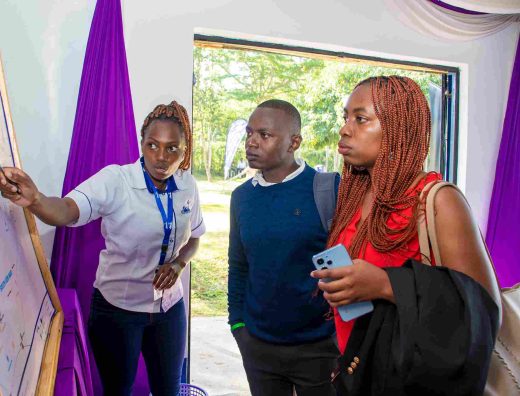Statistically, when the World Bank states that 61% of Kenyans have access to the Internet, with only 31% of them coming from rural Kenya, it simply means that there is a whole lot of 69% of the Kenyan population in rural areas that are not connected to the Internet. This figure is not far from that of the Kenya National Bureau of Statics (KNBS) on the internet penetration rate of 46.6%, with only 29.7% of the rural population having access.
A while back, a mention of cybersecurity, Internet censorship, fintech, cloud computing, and online learning to individuals in rural areas of Kenya would have sounded a bit muddling. It might have been challenging to communicate the importance of these topics or be confused with total disrespect to the rural dwellers, considering that their sole worry might have been the source of their next meal, water, and probably a few shillings for a talk time credit.
However, this is different. Things are changing and rural villages and urban slums which were once forgotten, are now vibrant and full of excitement. Almost every individual in these communities is now committed to improving their socioeconomic status like never before, all thanks to the commitments of the community networks (CNs). The introduction of the Internet in these communities has spurred a myriad of sustainable projects that seek to better the lives of marginalised and underserved communities.
Establishing CNs has not been easy, but it has been achieved through continuous and persistent collaboration from various stakeholders, with much support from the Communication Authority (CA). The CA has produced regulatory frameworks, under the Licensing and Shared Spectrum Framework for Community Networks, to guide the establishment and operations of CNs, provided funding through the Universal Service Fund (USF), and granted licenses to ensure they operate within the confines of the law. As a result, the digital divide has been significantly reduced, and there is now greater inclusion and equality for all, including persons with disabilities.
To truly grasp the significance of community networks and their contributions to connecting the unconnected, underserved, and marginalized, one needed to have firsthand experience at the just concluded National Summit for Community Networks in Kenya, which took place from the 14th to 16th of February, 2024, at Akala, a rural Town within Siaya county. This forum, organized by ISOC Kenya, the Association of Community Network of Kenya, AHERI, Kijiji Yeetu, KICTANet and others, was the first event of its kind aimed at acknowledging the valuable work of community networks, and the role they have been playing in connecting the unconnected, underserved and the marginalised.
It was amazing to see how technology, through CNs, has intertwined with rural livelihoods. Women’s merry-go-rounds, commonly known as table baking, are run and facilitated via digital platforms. Farming is tech-facilitated, and climate change is being mitigated sustainably thanks to eco-friendly jikos. All these from the skills learnt from the internet.
A good example is the works of Community Initiatives Support Services (CISS) in Akala, Siaya County. CISS has played a vital role in promoting the use of the internet to enhance local crop growing, dairy goat rearing, apiary (beekeeping), tree nursery, and agroforestry projects, among other initiatives.
It has gone further to ensure inclusivity, and that is how the Wagai Shelter for the Disabled, a project of CISS, has found its name on the digital maps. The centre takes pride in having an internet hub exclusively serving persons with disabilities who have been capacitated to learn online, while practically exercising the skills through farming and crop production.
Such programs and projects focusing on inclusion and sustainability are specifically of interest to KICTANet, first because connecting the unconnected lies solely on its guiding philosophy of encouraging synergies for ICT policy-related activities and initiatives. Second, currently, the KICTANet Digital Accessibility program is implementing a project on Empowering Community Networks to Accessibility and Inclusion funded by the Collaboration on International ICT Policy for East and Southern Africa (CIPESA) under the Africa Digital Rights Fund (ADRF).
Participation of the KICTANet Digital Accessibility team in the National Summit of Community Networks in Kenya was facilitated by the Africa Digital Rights Fund with support from the Collaboration on International ICT Policy for East and Southern Africa (CIPESA).
Nicodemus Nyakundi is a Digital Accessibility program officer at KICTANet. He has a background in IT and advocates for ICT access and equality for PWDs
![]()




